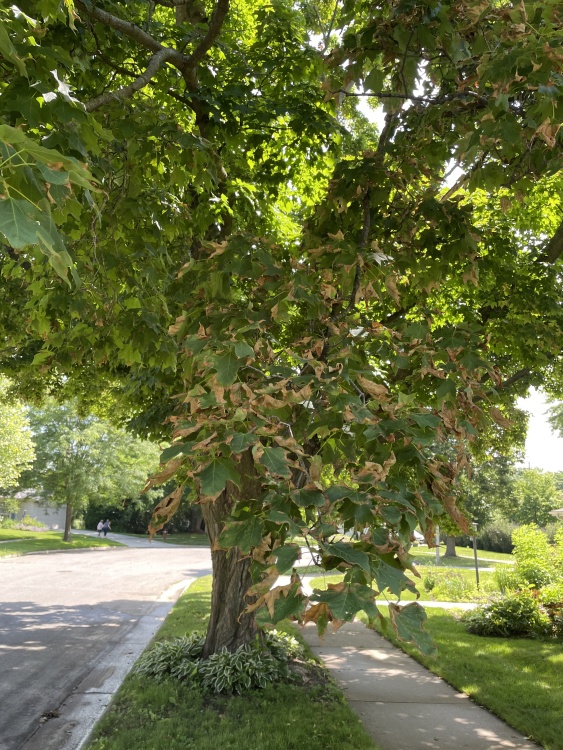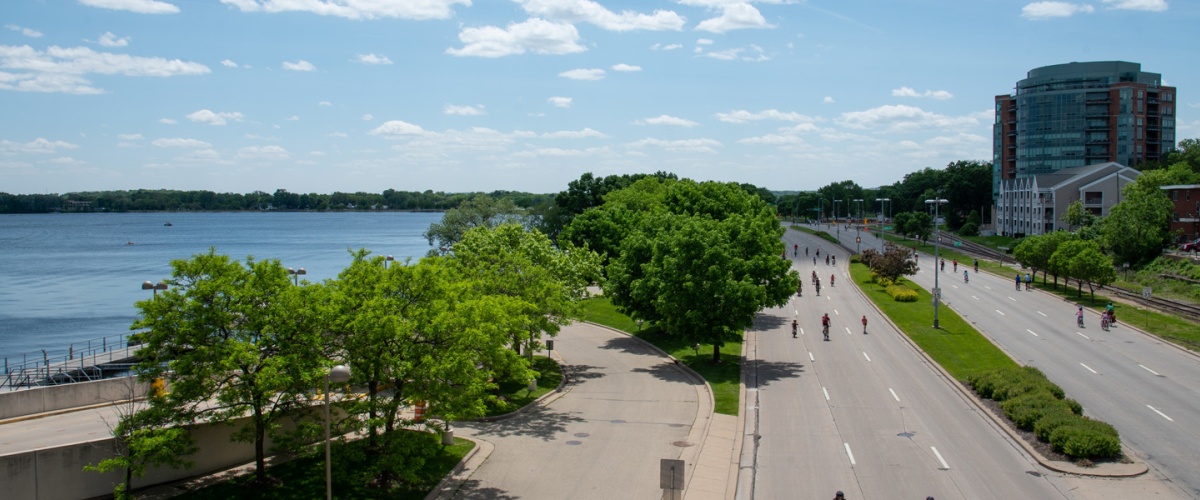Protect Trees from Weed Killer
The City of Madison Streets and Urban Forestry Division would like to remind residents that incorrect application of weed killers (herbicides) near trees can damage, or even mortally wound them.
There are ways to keep our lawns looking their best while keeping trees safe.
The Tree Damage We Have Seen
A tree struggling with herbicide damage shows a few telltale signs.
The problems include discolored leaves, cupping leaves, small leaf development, among other worrying conditions.
According to Ian Brown, City of Madison Forester, “We’ve seen the problem lower in the tree canopy, which suggests the herbicide may have been over-sprayed, or perhaps the herbicide misted or drifted onto the leaves.”

Here’s How You Can Help Protect Trees
Obviously, no one wants to damage a tree on the terrace or in their yard – they provide so many benefits to all of us.
Instead of using chemicals on your lawns, try pulling the weeds as appropriate, especially around trees.
If you need to use chemicals, choose granular applications instead of liquids – especially on windy days. Granular applications will not spray or mist onto leaves of trees.
And if you absolutely need to apply liquid weed killers to your lawn, use them as directed and do not use them on windy days so the spray will go precisely where it is intended to work.
If you are paying a lawn care professionals certified in the use of herbicides/pesticides to help maintain your property, talk with them about best practices to protect the trees so they are not damaged.
How to Help a Tree Recover from Herbicide Damage
You can help trees recover from herbicide damage, and other stressors with regular watering, correct placement of a mulch ring around the tree, keeping mowers and string trimmers away from the trunk to prevent harm, and avoiding pruning.
Healthy trees with limited damage will likely recover.
If a Tree Cannot Recover
Unfortunately, if a tree is damaged by herbicide beyond the point where it can recover, Urban Forestry will remove it.
In this instance, city ordinance allows for a fine and the cost of the replacement tree to be passed onto the person responsible for the damage.
Contact Urban Forestry
If you have additional questions for concerns about the tree on the terrace in front of your home, please contact Urban Forestry at 608-266-4816 or email at forestry@cityofmadison.com.
If you have a question about a tree on your private property, we recommend contacting a certified arborist to help with your private property issues.

